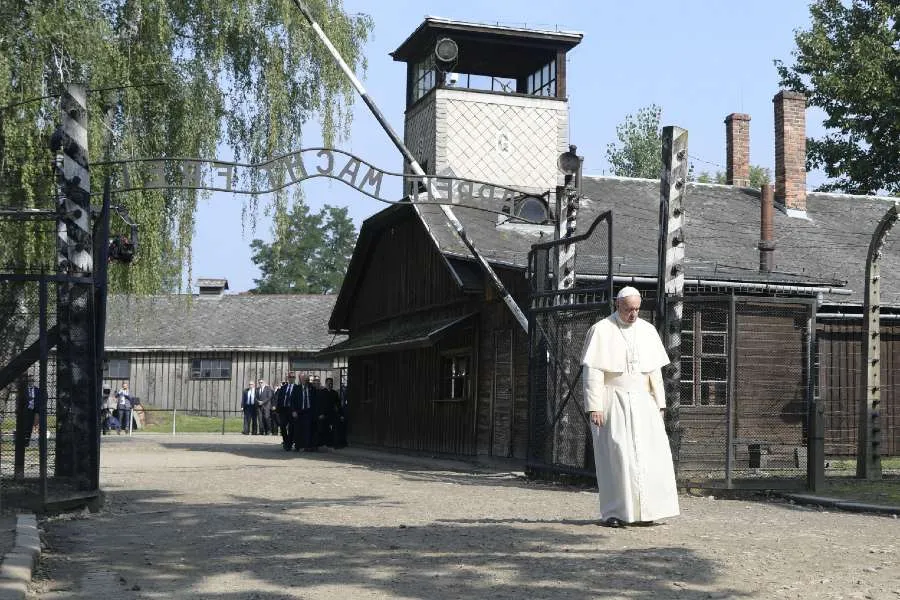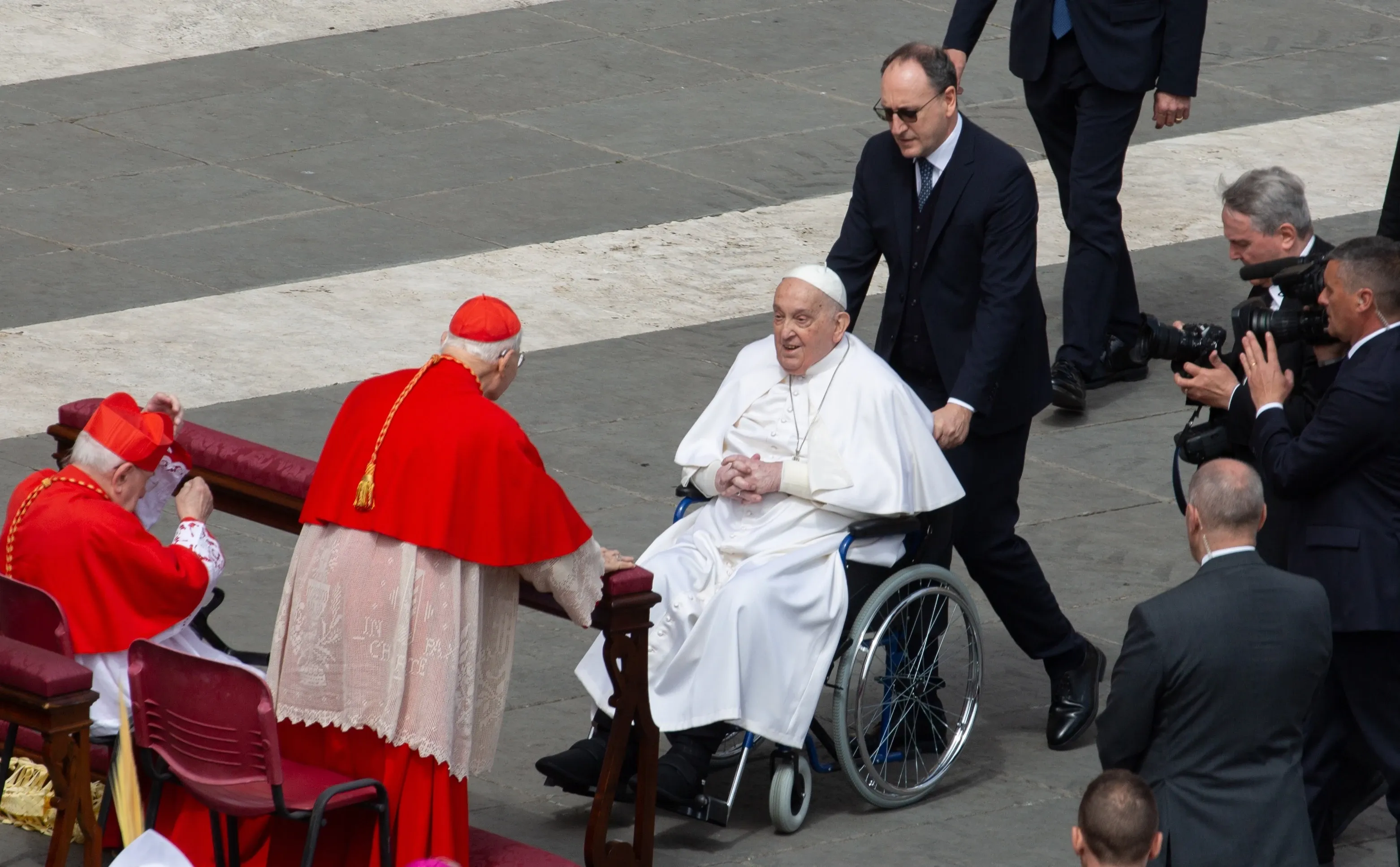In a meeting with the Simon Wiesenthal Center, a Jewish human rights organization, last week Pope Francis recalled his visit to the Nazi concentration camp in Poland in 2016:
“I went there to reflect and to pray in silence. In our world, with its whirlwind of activity, we find it hard to pause, to look within and to listen in silence to the plea of suffering humanity.”
“If we lose our memory, we destroy our future. May the anniversary of the unspeakable cruelty that humanity learned of 75 years ago serve as a summons to pause, to be still and to remember. We need to do this, lest we become indifferent,” Pope Francis said.
The pope also condemned the “barbaric resurgence” of cases of anti-Semitism in the world, and urged the need to respect each person’s human dignity.
“It is troubling to see, in many parts of the world, an increase in selfishness and indifference, lack of concern for others and the attitude that says life is good as long as it is good for me, and when things go wrong, anger and malice are unleashed,” Pope Francis said Jan. 20.
“This creates a fertile ground for the forms of factionalism and populism we see around us, where hatred quickly springs up,” he said. “Even recently, we have witnessed a barbaric resurgence of cases of anti-Semitism. Once more I firmly condemn every form of anti-Semitism.”
The Council of European Bishops’ Conferences and the Commission of the Bishops’ Conference of the European Union also denounced anti-Semitism, racism, and xenophobia in a Jan. 25 statement marking the anniversary.
“At the hour of the liberation of Auschwitz-Birkenau concentration camp, let us light candles and say a prayer for people murdered in death camps of all nationalities and religions and for their relatives. Let our prayers broaden the reconciliation and brotherhood, of which the opposite is hostility, destructive conflicts and fueled misunderstandings,” the bishops encouraged.
“Cruel wars, genocide, persecution, and different forms of fanaticism are still taking place, although history teaches us that violence never leads to peace but, on the contrary, breeds more violence and death,” they added. “May the power of Christ’s love prevail in us.”
Courtney Mares is a Rome Correspondent for Catholic News Agency. A graduate of Harvard University, she has reported from news bureaus on three continents and was awarded the Gardner Fellowship for her work with North Korean refugees.








